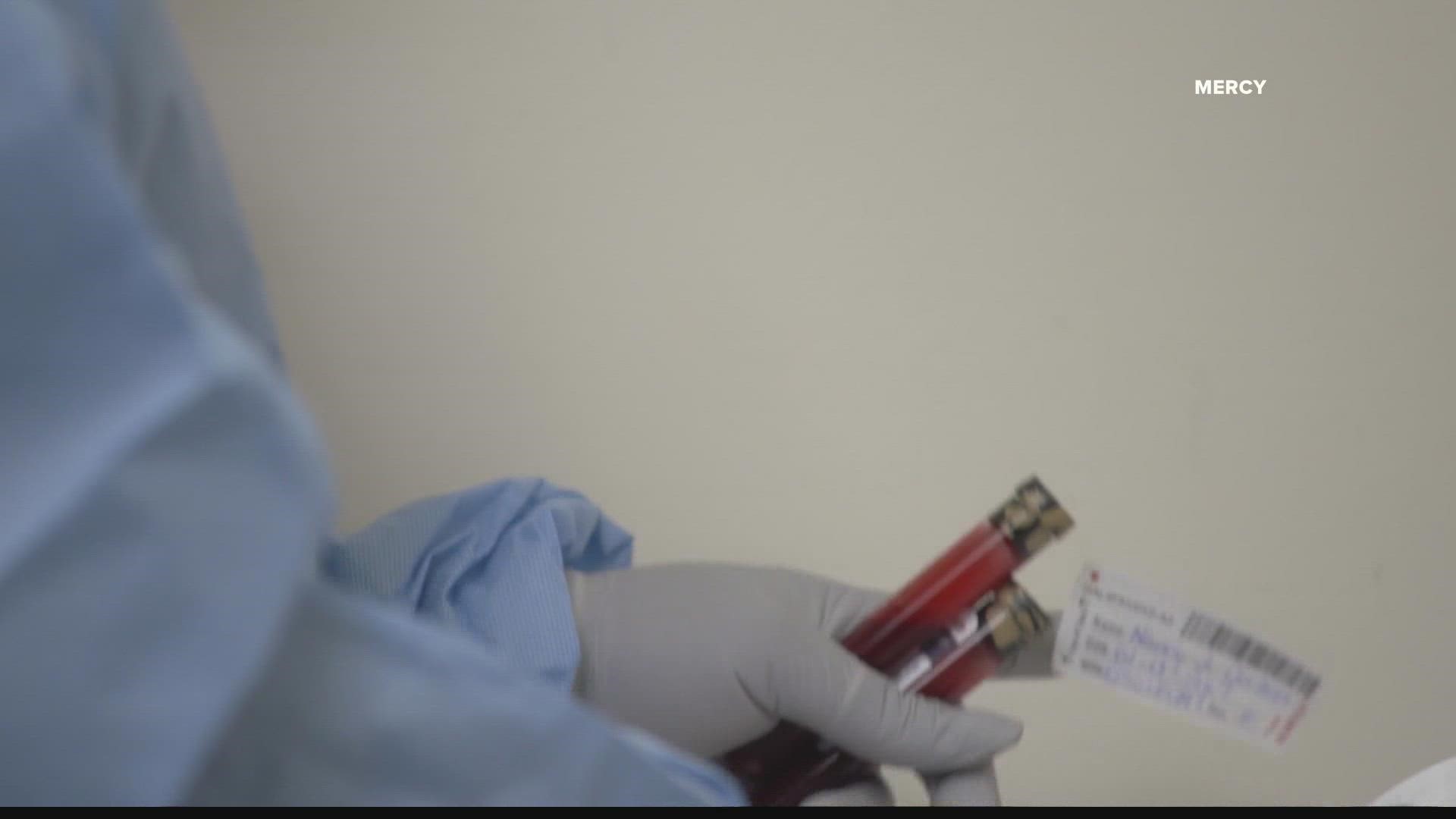ST. LOUIS — On Tuesday, the Mercy Hospital system released a first-of-its-kind blood test that can detect more than 50 different types of early-stage cancer. This is a collaborative effort between Mercy and GRAIL, LLC.
Mercy Chief Clinical Officer John Mohart said early cancer detection is what can save lives.
"This is a simple blood test, and it looks for DNA in the bloodstream," Mohart said.
The test essentially looks for a shared signal in a person's bloodstream that indicates many cancers. Mohart said a reason this test is so groundbreaking is that routine cancer screenings only detect about five types of cancer. He says 71% of cancer deaths are cancers that are not routinely screened for.
"That's why this test is so important to have early detection so we can treat earlier and avoid some of the long-term problems and help people live longer," Mohart said.
Mercy employee Nancy Dixon was one of the first patients to sign up for the test. She knows this feeling all too well. She lost her dad to pancreatic cancer when she was just 16 years old.
"I just wish that we had this a long time ago and my dad might still be alive today and he might be here for my daughter," Dixon said.
Mohart says the test takes up to two weeks to produce results. If results are positive, Mercy will put you on the right track to proper treatment.
Dixon says even the peace of mind in knowing helps.
"When you're a kid, you think your parents are gonna live forever," she said.
She said although it's too late to change things for her dad, she hopes she can give her loved ones a peace of mind too.
"I would rather know and do something about it and maybe have a little more time if it were to be positive rather than ignore, and not give the people that I love on this planet more time," she said.
Mercy said right now, this blood test is not covered by insurance. According to its website, the current test cost is $949.
Mohart said that could always change in the future, so check with your provider or physician to see if it's the right decision for you to make.

